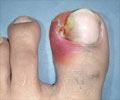Nagpur Municipal Corporation excels in child immunization, ensuring health resilience against diseases. Explore their effective outreach strategies.
- Nagpur Municipal Corporation ranks second in the state for successful immunization of the under-18 population
- NMC initiates a comprehensive outreach program to ensure children complete their vaccine doses, targeting dropouts and high refusal areas
- Despite the on-paper success, hurdles like parental resistance persist. NMC aims for broader coverage and enhanced community engagement for sustained immunization success
Improving Immunization Coverage in India
To further enhance immunization coverage and shield the young population from potential outbreaks, the NMC health department, led by Additional Commissioner Anchal Goyal, initiated an outreach program. This program aimed to address vaccine dropouts, ensuring they complete their doses, and targeted areas with high vaccine refusal rates, aligning with recommendations from the World Health Organization (WHO) (1).Following the WHO immunization chart, newborns must receive BCG and Hepatitis B (0) within the first 24 hours. Subsequently, the child needs to undergo a series of 20 vaccines at regular intervals to develop immunity against life-threatening diseases such as diphtheria, pertussis, tetanus, hepatitis B, and contagious ailments like polio, diarrhea, and measles, among others.
India's Routine Immunization Program
While on paper, the NMC's routine immunization program reflects over-achievement, officials acknowledge resistance from some parents. Dr. Sarla Lad, Mother and Child Reproductive Health Officer at NMC, noted that the apparent over-achievement is partly due to rural residents seeking vaccine shots in the city, and in some cases, children not surviving after birth. She emphasized that there is room for improvement in coverage achievement.Challenges for Poor Vaccine Coverage
Dr. Lad highlighted challenges faced by health workers, particularly in slum pockets and Muslim-dominated areas, where resistance to vaccines is more pronounced. In addressing this, Zonal Medical Officer Dr. Ateequr Raheman Khan has been tasked with building rapport within the Muslim community and expanding vaccine reach.Certain low-income areas, primarily Muslim-dominated, cited concerns such as pain and irritability for the child as reasons for avoiding vaccines, according to Dr. Lad. She pointed out that after initial jabs following childbirth, residents often fail to show up for subsequent doses.
Meanwhile, the elite class claims to have administered doses in private hospitals but lacks records on the children's medical files. These challenges underscore the need for targeted efforts to enhance vaccine acceptance across diverse socio-economic groups within the city.
Reference:
- Vaccines and immunization - (https://www.who.int/health-topics/vaccines-and-immunization?#tab=tab_1)
Source-Medindia










